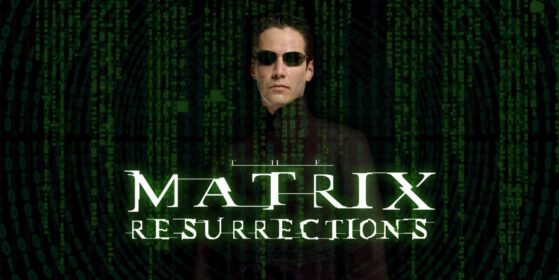
“White Rabbit” featured in new trailer for “The Matrix Resurrections” film
Check out the brand-new trailer that launched this morning for the new Matrix film that will be in theaters Dec. 22nd. Features “White Rabbit”!

Check out the brand-new trailer that launched this morning for the new Matrix film that will be in theaters Dec. 22nd. Features “White Rabbit”!
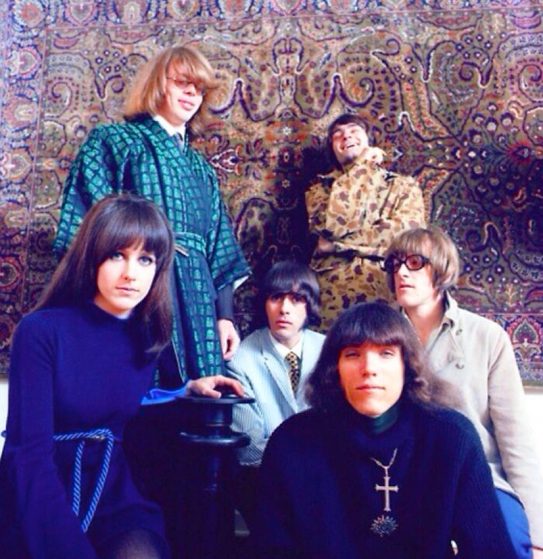
In 1965 when Jefferson Airplane came to Los Angeles to record our first project for RCA, we stayed off the Boulevard in what was then affordable lodging. We walked that street as complete nonentities and loved the adventure. To have a star there today is indeed more than capturing a dream. It is a benchmark for us in the City of Angels. – Jorma Kaukonen and Jack Casady
Jefferson Airplane has been inducted into the Hollywood Walk of Fame and will be honored with a star with the class of 2021. Read the entire release at www.walkoffame.com.
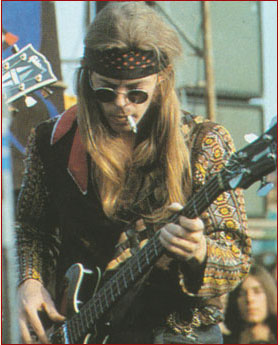
https://radio.wosu.org/post/talk-bass-pioneer-jack-casady#stream/0
Recently, Elaine Diehl had the opportunity to interview Rock Hall of Famer Jorma Kaukonen about his career, including his bands Jefferson Airplane and Hot Tuna. He mentioned that his good friend and bandmate, bassist Jack Casady, would be a good one to talk with about music and his career, so that’s what Elaine has done. Join her for this conversation with one of the most influential bass players in rock history. Click on the link above to listen!
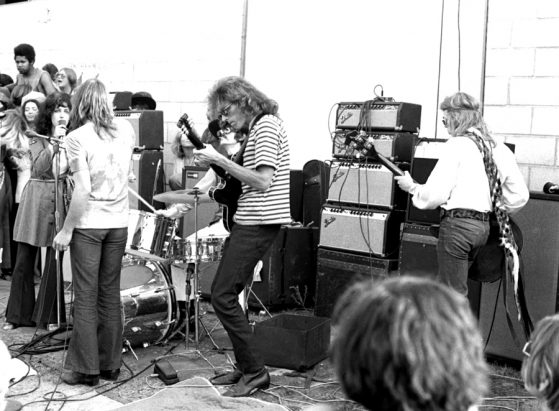
Dive In! https://www.jambase.com/article/grateful-dead-phish-allman-brothers-spotify-playlist
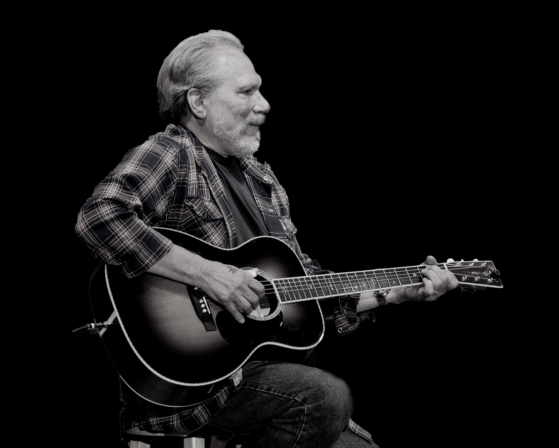
After recently reviewing his memoir, Elaine Diehl now get the opportunity to have a conversation with legendary rock musician Jorma Kaukonen (Jefferson Airplane, Hot Tuna.) Along with his book, Been So Long, they talk about his career and his current life, living in southeastern Ohio and running the Fur Peach Ranch music venue and guitar camp.
Listen here: https://radio.wosu.org/post/conversation-rock-hall-famer-jorma-kaukonen#stream/0
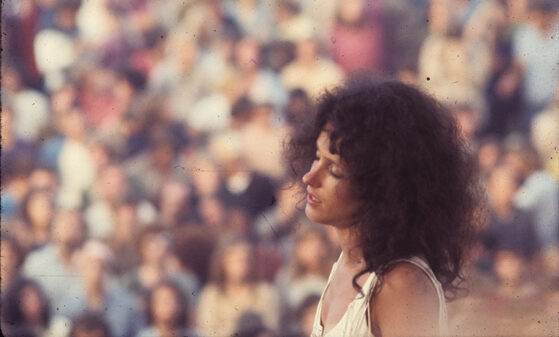
Read the whole article on HAPPY MAG.
Restrictions on socialising are forcing the young and old to re-evaluate their relationships and priorities. Rising unemployment and a subsequent lack of financial security has led to rampant and commonplace anxieties. Many industries are surviving only on the call of government support. Non-essential workers stew away at home while their essential counterparts man the frontline. Retail is shuttered and whole business districts lie dormant. Limits on travel are encouraging Australians to turn inward for their aspirations, arts, and culture.
When Australia emerges from this most peculiar of times, the population will be bound by a residual anxiety and a simultaneous eagerness to participate in public life. More than ever before, we’ll be joined by common experience and the mutual desire to find stability and purpose in our local worlds. While the circumstances couldn’t be more different, it seems that what we have before us are the makings of a new Summer of Love, one that might not be defined by public gatherings like Monterey and Woodstock, but by a shared consciousness and desire for connection nonetheless.
50 years ago, the soundtrack to the Summer of Love was acid rock, a sound pulsating with the two mainstays of the hippie lifestyle: drugs and music. The psychedelic experience and the hopeful, ascendant music that scored it rang the movement’s catch-cry home, “Make Love, Not War.” At the heart of this new sound was a band called Jefferson Airplane, fronted by a woman who oozed the hippie lifestyle, Grace Slick.
Grace Slick and the Jefferson Airplane rose in popularity with tracks like Somebody to Love and White Rabbit, the latter a song that ties the adventures of Alice in Wonderland to the mind-altering experiences of the 1960s. Harbouring away from COVID-19 in her home in Los Angeles, Slick finds the parallels between the ’60s and now worth the conversation, particularly with regards to togetherness, arts localisation, change, and hope.
Despite being bound by a common fear of the virus, Slick comments that the globe has never been more “self-interested” and divided. During the 1967 Summer of Love, “you were either a hippie, or you were straight.” The simplicity of this political divide saw people mobilise effectively against a common cause. Today, however, Slick talks of “too many cooks ruining the soup,” and a proliferation of small interest groups “making it hard to get stuff done.” There’s “a greater consciousness of a spread between people” despite the media saying “in big block letters we’re all in this together,” and the fear of COVID-19 experienced on an individual level is reducing any collective mentality from developing.
Unlike her stance on unity in this period, Slick sees clear commonalities in the way local arts will be embraced in a travel-restricted world. Slick contests the romanticised image of Woodstock as the iconic festival of the 1960s, saying that “it was just big, and unfortunately in America, big means marvellous.” While it was “interesting playing for half a million people,” the grassroots Monterey Pop festival is the event Slick truly celebrates. “It was smaller and the artists actually got to see each other play… I’d heard Jimi Hendrix, but I’d never seen him. I’d heard The Who on record, but I’d never seen them.” Slick suggests that reduced international mobility in the new world will see a surge in support for local arts and sees no reason why the community culture of 1967 won’t be reignited.
While the 1967 Summer of Love arrived on the back of generational change, in 2020, Slick expects COVID-19 to precipitate one. Slick comments that “in the ’50s, you didn’t have sex before you were married. You didn’t swear like I always had – my mother used to say, Grace, you sound like a truck driver!” By the 1960s, “it was completely different,” and Grace indulged in every pleasure on and off the menu.
“Drugs are like cheeseburgers – you might not have them three or four meals a day, but you still love them all the same.” Slick expects a range of societal changes to follow COVID-19, from a reluctance to participate in large public events to a broadened fashion catalogue of “designer hazmat suits, designer masks, and designer gas masks.”
The greatest divergence Slick detects between the Summer of Love that was and the one to come is the population’s understanding of how to affect social change. Slick muses that the hippies were bound by their hope for “a change in attitude about the war,” but hope alone was their vehicle for change and they failed to invest meaningfully in diplomacy and politics. Slick comments that today, it’s understood that positive change is a consequence of working together with the government and its agencies.
“You can’t just have the California and New York governors being smart, it has to be the federal government and at the moment we don’t have one.”
Strip back the fetishised image of the Summer of Love as a cultural renaissance and what you have is a more commonplace experience of collective rebellion. With restrictions on socialising, rising unemployment, home lives fraught with new pressures and a future that looks most uncertain, what we are experiencing is a convergence of our world’s concerns.
While acid rock and the war in Vietnam might no longer be on our radar, it seems that on the local and national level, we’re all back to campaigning for a more compassionate future.
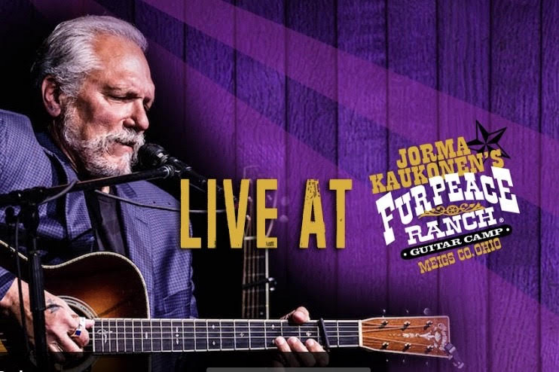
Jefferson Airplane/Hot Tuna guitarist Jorma Kaukonen will go live on Saturday, May 2 to serve up some music and “excellent acoustics from the Fur Peace Station Concert Hall.”
“It is our pleasure and honor to bring these free concerts to our friends all over the world. We wish you were here, but we’ll take the win any way we can,” said Kaukonen via press release.
This marks Kaukonen’s fifth show from quarantine, and the broadcast is set to kick off at 8 p.m. ET.
According to an announcement, “Jorma will perform, tell stories and talk about his songs, often playing them on the very guitar he wrote the song on.”
Tune in to Kaukonen’s Quarantine Concert on Saturday, May 2 at 8 p.m. ET at the Fur Peach Ranch YouTube.
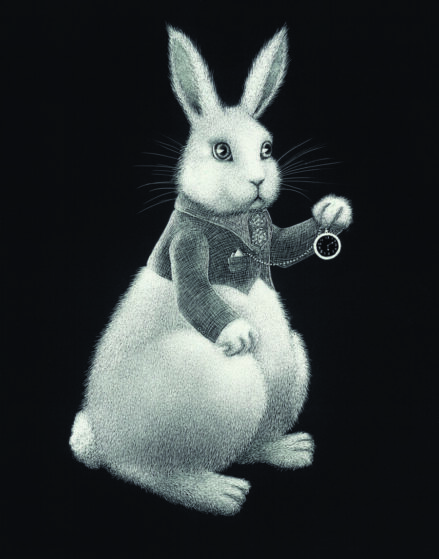
Read the original story at Happy Mag.
Curiouser and curiouser. Jefferson Airplane’s White Rabbit was famously the first pop song focused on the experience of hallucinogens that scored major air time on mainstream radio. The soundtrack of the Summer of Love 1967 perfectly captures the free-wheeling counterculture essence of the band’s leading lady, Grace Slick.
Rising amidst the boiling pot of artists that orbited around Haight-Ashbury in the sixties, Jefferson Airplane came to inhabit the dais of honoured talent shared by their Bay Area contemporaries The Grateful Dead, Sly & The Family Stone, Big Brother and the Holding Company, and Creedence Clearwater Revival. Long names and even longer shadows.
A nestled gem, the two and half minute trance sparkled amidst the golden plated Surrealistic Pillow, and broadcast the hippie ideals of its time. As Airplane founder Marty Balin put it: “It was timely for the ear. The myth, the idea, the acid.”
Unsurprisingly, Slick took open inspiration from Lewis Carroll’s dreamscape masterpiece Alice’s Adventures In Wonderland. The fluid surrealism and perceptive alterations imbued Carroll’s work with a notoriety for being acid-laced.
With character reference’s to a spacey Alice, the hookah-smoking caterpillar, the White Knight, Red Queen, the Dormouse, and of course the White Rabbit, the influence is clear.
But does either work explicitly relate to drugs? Despite encountering pills that make you larger or smaller and eating ‘some kind of mushroom’ that leaves ‘your mind moving low’, Grace Slick is adamant the song does not refer to drugs.
For Slick, the song “is about following your curiosity. The White Rabbit is your curiosity.”
In 2016, at the age of 76, Ms. Slick also blamed it on lousy parents with their “glasses of scotch.”
“They also seemed unaware that many books they read to us as kids had drug use as a subtext. Peter Pan uses fairy dust and can fly, Dorothy and her friends in “The Wonderful Wizard of Oz” cut through a poppy field and wind up stoned and fast asleep.”
Slick also sees the song as a liberating call to arms for intelligence and education, to ‘feed your head’.
Funnily enough, Lewis Carroll indulged in drugs while he wrote Alice’s Adventures In Wonderland. He may have taken opiate-infused drug Laudanum (which was readily available to everyone in the 1860s), though his personal journals make no explicit mention of drugs or other mind-altering substances.
Slick wrote White Rabbit at her home in Marin County in 1966. She had purchased a small upright piano for $80 at a warehouse San Francisco, on which she wrote many of Jefferson Airplane’s earliest songs.
“It was painted about 90 coats of bright red and was missing around 10 keys in the upper register. I didn’t play way up there anyway—the notes were too pingy—so I bought it. Jerry and I put the piano in our living room.”
Fittingly, Slick wrote the piece at the end of an acid trip during which she listened to Miles Davis’ Sketches Of Spain for 24 hours straight. The Spanish beat that defines White Rabbit is also influenced by Ravel’s Bolero.
Then she presented it to her bandmates, San Francisco raga-folk avatars the Great Society, who included Grace’s husband, drummer Jerry Slick, brother-in-law Darby Slick on lead guitar, bassist Peter Van Gelder on bass and rhythm guitarist Dave Minor.
Sitting at over six minutes the original version was much trippier, and three times the length, of Airplane’s single version. It was Eastern flavoured, with an improvised raga intro and Slick’s vocals were more contrived.
Then came a benefit show at the Fillmore in September 1966. Sharing the bill with a crumbling Great Society were Jefferson Airplane, then searching for a new singer. Airplane bassist Jack Casady had seen Grace several times and wanted her in.
“I liked Grace’s singing because we wanted a good, aggressive singer for the band,” says Casady, “She had a unique timbre and sound to her voice; Signe [Anderson], who was our first singer, came out of a folk background and had a contralto voice with smooth harmonies. What I like about Grace was the fact she stood right at the end of the stage and made good contact with the audience.”
Airplane manager Bill Thompson drafted Grace’s contract for a measly $750 and Slick was signed, replacing the clear belled folk tones of Anderson with a fiery, strident approach. And in the following month, the band set out to record Surrealistic Pillow.
Casady recalls the day Jefferson Airplane recorded it: “We recorded it out at Sunset and Ivar, in a huge room at RCA where they used to record A Hundred And One Strings. The room was massive, so we basically set up the instrumentation in the middle of this room and played it live onto four-track. It was very simple to record. I just led the song out as a bass part like Bolero, ripping off Ravel. It was all slow and slinky, it gave us the atmosphere we wanted.”
With with fellow San Fran tripper, Jerry Garcia, credited as ‘musical and spiritual advisor’, the album was a massive success, peaking at #3 on the US Billboard chart and consolidating Airplane’s status as a leading act of the Bay Area.
Grace Slick is still synonymous with Alice’s Adventure In Wonderland, through her time with Jefferson Starship and beyond. Now retired in from the music business, she now runs a one-woman art show in Malibu. Her most popular work, funnily enough, is a series of paintings based on the Alice books.
It seems Slick has lost none of her free-thinking ideologies either. In 2017, she licensed the Starship song Nothing’s Gonna Stop Us Now to Chick-fil-A to use in a TV commercial, but because she disagrees with Chick-fil-A’s corporate views on same-sex marriage she gave all of the proceeds of that deal to Lambda Legal, an organization that works to advance the civil rights of LGBTQ people and everyone living with HIV.
It shouldn’t come as a surprise that someone who could pen a timeless ode to following one’s curiosity would still be committed to art and progressive ideas well after the music had stopped. It turns out chasing the White Rabbit – at least in Grace Slick’s case – can be a lifetime pursuit.
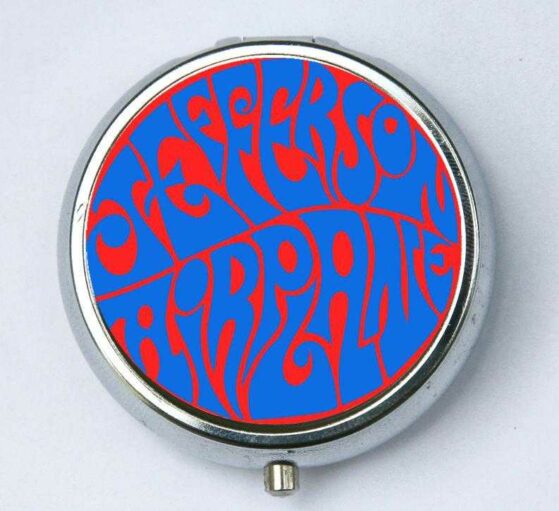
Last summer Jefferson Airplane released their complete Woodstock set on vinyl for the first time ever. And fans were offered a little more…a pillbox emblazoned with a suitably psychedelic band logo free with any purchase. Well, both the LP package and the pillbox were gigantic hits, as they were sold out immediately with the first pressing…so we decided to offer them again! Except this time, the vinyl color on the WOODSTOCK SUNDAY AUGUST 17, 1969 3-LP set is “vibrating” violet, to commemorate Grace Slick’s comment from the stage that “everyone’s vibrating.” And, yup, the pillbox is free if you buy the vinyl! There are going to be lots of “Volunteers” for this package…so don’t wait too long because there are limited quantities! WOODSTOCK SUNDAY AUGUST 17, 1969 3-LP set will be available on 1.31.2020.
Pre-order your copy today:
https://shop.realgonemusic.com/products/jefferson-airplane-woodstock-3-lp-set?_pos=1&_sid=e30394584&_ss=r
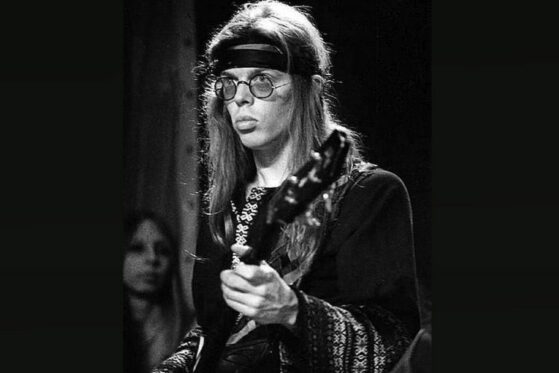
Read the whole story here: https://www.guitarworld.com/features/jack-casadys-10-best-bass-performances
In the hands of Jack Casady, the teen-aged bass guitar soared to unprecedented new heights via the aptly-named Jefferson Airplane and the soon-to-emerge Hot Tuna, in the late ’60s.
In the ensuing 50 years, Casady has continued to leave his indelible mark on bass line construction via taste, tone, dynamics, melodicism, groove, and feel with everyone from Jimi Hendrix, David Crosby, SVT, and Warren Zevon to Gov’t Mule, Rusted Root, Peter Rowan, and of course, various editions of the unstoppable Hot Tuna.
We thought it was high time to look back at Casady’s low-end legacy.
What would make your list?